Does Fda Regulate Aromatherapy Products
Aromatherapy has gained popularity in recent years as a natural and holistic approach to wellness.
There are a variety of products involved, from essential oils to diffusers, candles, and massage oils.
This article will explore the regulations surrounding aromatherapy products by the FDA, FTC, and EPA, as well as potential risks and side effects to be aware of.
We will provide tips on choosing safe and effective aromatherapy products for your well-being.
Key Takeaways:
What Is Aromatherapy?
Aromatherapy is a holistic healing treatment that uses natural plant extracts to promote health and well-being. It dates back to ancient civilizations like the Egyptians, Greeks, and Chinese, who recognized the therapeutic benefits of essential oils extracted from various plants and herbs.
These ancient cultures integrated the use of aromatic substances into their daily lives, believing in the power of scents to affect physical and emotional well-being. The Egyptians used aromatic oils in religious rituals and mummification processes, while the Greeks employed them in medicine and perfumery.
Aromatherapy gained further recognition during the Middle Ages when herbal remedies became a prominent part of European medicine. The Renaissance period witnessed a resurgence of interest in the medicinal properties of plants, leading to the development of distillation techniques for extracting essential oils.
What Are Aromatherapy Products?
Aromatherapy products encompass a range of items designed to harness the therapeutic properties of essential oils for consumer well-being. These products include essential oil blends, diffusers, candles, and massage oils, each offering unique benefits and applications.
Essential oil blends are carefully curated mixtures of various essential oils, specially crafted to evoke distinct moods or address specific concerns such as stress relief or promoting sleep.
On the other hand, diffusers are popular for dispersing essential oils into the air, allowing users to benefit from their aromatherapeutic effects throughout a room. Many people find diffusers not only calming but also beneficial for respiratory health.
Candles infused with essential oils are a favorite for creating a cozy ambiance and offering gentle aromatherapy benefits.
Lastly, massage oils blended with essential oils are sought after for their dual benefits of nourishing the skin and promoting relaxation during massages.
Essential Oils
Essential oils are concentrated extracts derived from plants, herbs, and botanicals through processes like distillation or cold pressing. These oils contain the natural aromatic compounds that give plants their distinctive scents and therapeutic properties.
For centuries, essential oils have been used for their healing and aromatic properties in traditional medicine and cosmetics. The production methods vary depending on the botanical source; some plants require steam distillation, while others are better suited for cold pressing extraction. Quality control is paramount in the creation of these oils to ensure purity and potency. Aromatherapy, one of the primary uses of essential oils, harnesses the power of these natural extracts for emotional and physical well-being. Massage oils, diffusers, and topical applications are popular ways to enjoy the benefits of these oils in daily life.
Diffusers
Diffusers are devices used to disperse essential oil molecules into the air, allowing for inhalation and diffusion of their therapeutic benefits. They come in various types such as ultrasonic, nebulizing, and heat-based diffusers, each offering unique diffusion methods.
Ultrasonic diffusers use water and ultrasonic waves to create a fine mist of water and oil particles, providing both aromatherapy benefits and adding humidity to the air. These are generally considered safe and effective for most people.
Nebulizing diffusers do not require water and release pure essential oil vapor into the air, making them potent but potentially overwhelming for some individuals. Heat-based diffusers, like electric or candle diffusers, use heat to evaporate oils, but this method can alter the chemical composition of the oils and reduce their therapeutic properties. It’s crucial to follow manufacturer’s guidelines for proper dilution and usage to prevent adverse reactions and potential hazards.
Candles
Aromatherapy candles are infused with essential oils to release their therapeutic fragrances when lit. These candles provide a soothing ambiance and can contribute to stress relief, relaxation, and mood enhancement.
During the manufacturing process of aromatherapy candles, companies carefully blend high-quality essential oils with natural waxes to ensure a harmonious fusion of scents and therapeutic benefits. Stringent regulations, set by organizations like the FDA, govern the production of these candles to ensure the safety and quality of the final product. These regulations dictate the permissible levels of essential oils, wick materials, and packaging standards to protect consumers from potential hazards.
Companies play a crucial role in adhering to these guidelines by conducting regular quality checks, testing for purity and potency of essential oils, and providing accurate labeling with ingredient information. By complying with FDA guidelines, these companies demonstrate their commitment to producing safe and effective aromatherapy candles for consumers to enjoy.
Massage Oils
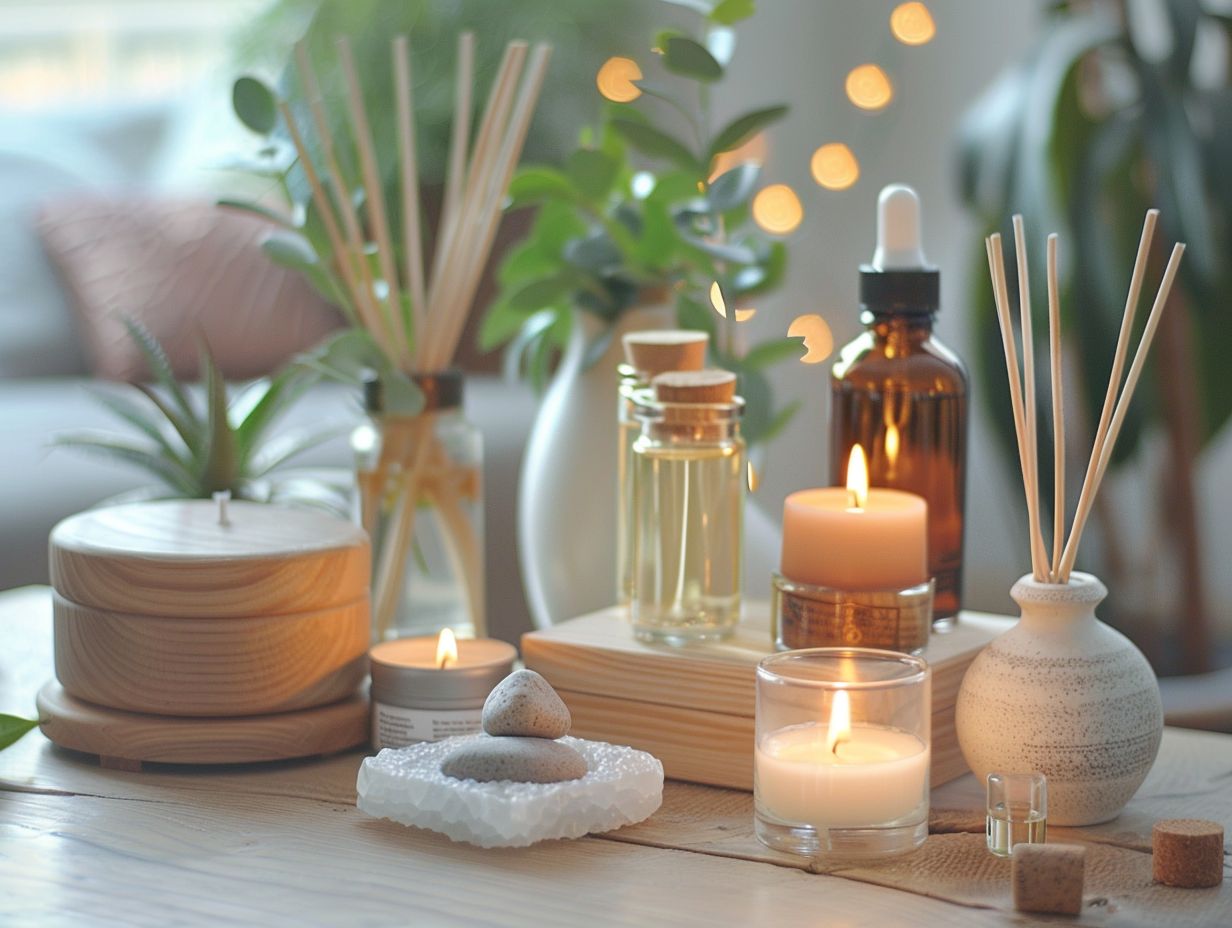
By infusing essential oils into massage oils, practitioners enhance the therapeutic experience for clients, tapping into the potent properties of various botanical extracts.
Therapeutic massage practices often incorporate these specially crafted blends to target specific concerns like pain management, inflammation reduction, or even emotional balance. The effectiveness of these essential oil-infused massage oils lies not only in their aromatic allure but also in their potential to soothe both the body and the mind simultaneously.
How Are Aromatherapy Products Regulated?
Aromatherapy products are subject to regulatory oversight by various entities like the FDA, FTC, and EPA to ensure consumer safety and adherence to marketing guidelines. Companies producing these products must comply with a range of regulations governing their manufacturing, labeling, and marketing practices.
These regulatory bodies play a crucial role in monitoring the quality and safety of aromatherapy products in the market. The FDA focuses on ensuring that these products are safe for consumers to use and that they are labeled accurately with all the necessary information. The FTC is more concerned with preventing deceptive advertising practices and ensuring that companies do not make false claims about the benefits of their products.
On the other hand, the EPA oversees the environmental impact of these products, especially those containing essential oils or other ingredients that could potentially harm the environment.
To navigate this complex regulatory landscape, companies need to stay informed about the latest compliance requirements and regularly assess their practices to ensure they meet all necessary standards. This proactive approach not only helps maintain regulatory compliance but also builds trust with consumers, demonstrating a commitment to product quality and safety.
FDA Regulations
The FDA regulates aromatherapy products containing essential oils as they are considered medicinal remedies derived from natural sources. Companies must adhere to FDA guidelines for product safety, labeling accuracy, and therapeutic claims to market their products legally.
A key aspect of FDA regulations for aromatherapy products is ensuring that these items are safe for consumer use. The guidelines stipulate that companies must conduct rigorous testing to confirm the absence of harmful substances and potential allergens in their products. Accurate labeling is crucial to provide consumers with transparent information about the ingredients, usage instructions, and any potential side effects. Marketing claims related to the therapeutic benefits of the products must be supported by scientific evidence to avoid misleading consumers with unsubstantiated assertions.
FTC Regulations
The FTC regulates the marketing practices of aromatherapy product companies, ensuring that their promotional claims are truthful, substantiated, and not misleading to consumers. Companies must provide clear and accurate information about their products to avoid deceptive marketing practices.
FTC guidelines stress the importance of truthful advertising, which means companies must back up their claims with reliable scientific evidence. This not only protects consumers from falling for false promises but also promotes fair competition in the market.
The FTC requires companies to ensure that their products’ claims substantiation is valid and that any health benefits or therapeutic effects are supported by credible research. By enforcing these standards, the FTC aims to safeguard consumers from deceptive practices and ensure they make informed choices when purchasing aromatherapy products.
EPA Regulations
The EPA sets regulations related to the environmental impact of aromatherapy products, including guidelines for proper disposal of waste materials and warnings about potential hazards to human health or the ecosystem. Companies must comply with EPA standards to minimize their environmental footprint.
These regulations are crucial for safeguarding the environment and the well-being of consumers. Environmental protection agencies, like the EPA, play a vital role in monitoring the manufacturing processes of aromatherapy products to ensure they do not pose risks to public health or the environment. By adhering to these guidelines, companies contribute to a sustainable and health-conscious industry, promoting the safe use of these therapeutic products.
Are Aromatherapy Products Safe?
While aromatherapy products offer natural and holistic remedies, consumers should be aware of potential risks and side effects associated with their usage. Essential oils, if not used properly, can cause skin irritation, allergic reactions, or other adverse effects.
It is essential for individuals experimenting with aromatherapy to educate themselves on proper usage and dilution ratios to avoid any unwarranted consequences. Strict adherence to safety guidelines is crucial in preventing skin sensitivities and ensuring a positive experience. Consulting a qualified aromatherapist or healthcare professional can provide valuable insights into the suitability of specific essential oils for individual needs.
Potential Risks and Side Effects
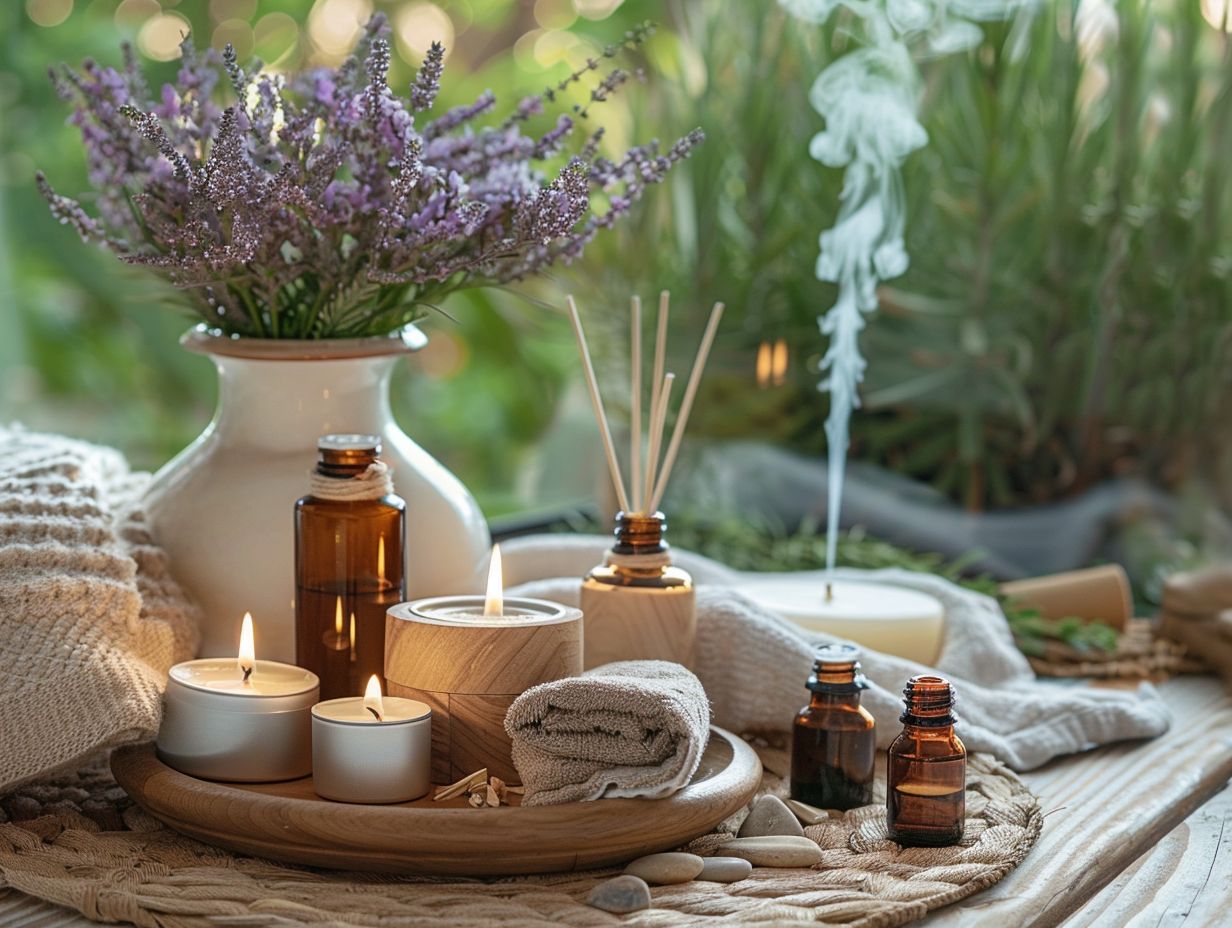
Textured oils such as citrus or spicy blends can cause phototoxic reactions when exposed to sunlight, leading to skin irritation or burns. Poorly regulated oils may contain synthetic additives or contaminants that can trigger allergies or respiratory issues.
- Quality control measures are vital to ensure that essential oils are responsibly sourced, produced, and tested for purity and potency.
- Dilution guidelines must be strictly adhered to; concentrated forms have the potential to irritate the skin or mucous membranes.
Proper Usage and Dilution
Proper usage and dilution of essential oils are crucial to ensure their safe and effective application in aromatherapy practices.
Consumers often underestimate the potency of essential oils and may not realize that they are highly concentrated extracts. Diluting essential oils properly not only prevents skin irritation and allergic reactions but also helps maximize their therapeutic benefits. When diluting essential oils, it is essential to use carrier oils like jojoba, coconut, or almond oil and adhere to recommended dilution ratios (usually 1-3% for adults) to maintain safety standards. The FDA recommends using caution with essential oils, especially around pets, children, and pregnant individuals, to minimize potential risks.
How to Choose Safe and Effective Aromatherapy Products?
Selecting safe and effective aromatherapy products requires attention to details like FDA registration, ingredient lists, and the reputation of the brand or company. Consultation with a healthcare professional can also provide valuable insights into choosing the right products for individual needs.
When considering aromatherapy products, it’s crucial to examine the label transparency to understand what ingredients are included and their potential effects.
- Look for products that clearly state the essential oils and any carrier oils used.
- Check for any allergens or potential irritants mentioned on the packaging.
This information can help you avoid unwanted reactions and ensure you are using high-quality products. Additionally, company credibility plays a significant role. Research the manufacturer to ensure they follow industry standards and prioritize product safety. Remember, seeking professional advice ensures that the chosen products are suitable for your specific health conditions and goals. By taking these steps, you can make informed decisions when selecting aromatherapy products that enhance your well-being.
Look for FDA Registration
When choosing aromatherapy products, consumers should prioritize those with FDA registration, as it signifies that the products meet specific safety and quality standards set by the regulatory authority. Ensure that sellers display their FDA registration information for transparency and trustworthiness.
Verifying the FDA registration of an aromatherapy item is crucial to guarantee that it has undergone rigorous testing and complies with industry regulations.
By confirming this certification, consumers can have peace of mind knowing that the product has been manufactured under strict guidelines and is safe for use.
FDA-registered products are often held to higher accountability standards, promoting ethical practices and reliable sourcing of ingredients.
Read Labels and Ingredients
Reading labels and ingredient lists is crucial when selecting aromatherapy products to ensure they contain natural, therapeutic ingredients without additives or harmful chemicals. Look for clear information on the source, purity, and botanical properties of essential oils used.
By scrutinizing labels, you can distinguish between authentic products derived from organic, sustainably sourced materials versus those laden with synthetic fragrances or fillers. Understanding the origins of ingredients helps you make informed decisions about the products you incorporate into your self-care routine.
Transparency in ingredient sourcing not only assures quality but also reflects a company’s commitment to ethical practices and environmental sustainability.
Research the Brand and Company
Before purchasing aromatherapy products, research the brand and company behind the products to assess their credibility, reputation, and commitment to therapeutic quality. Opt for brands known for their transparency, sustainable practices, and ethical sourcing of essential oils.
By diving into the history and values of the brand, consumers can gain insight into its dedication to maintaining product credibility and upholding the highest standards in aromatherapy.
Investigating customer reviews, certifications, and affiliations can offer a glimpse into the brand’s integrity within the industry.
Understanding the company’s ethical practices not only ensures the quality and authenticity of the products but also contributes to supporting businesses that prioritize sustainability and responsible sourcing.
Consult with a Healthcare Professional

Healthcare professionals possess the knowledge and expertise to assess individual health profiles and provide personalized advice on the appropriate use of aromatherapy products. They can consider factors such as allergies, sensitivities, and specific health concerns to recommend the most suitable essential oils or blends. Consulting with a healthcare professional is particularly crucial for individuals with chronic conditions or those undergoing medical treatments, as they may require specialized recommendations to ensure compatibility and optimal therapeutic outcomes.
Frequently Asked Questions
Does the FDA regulate aromatherapy products?
Yes, the FDA does regulate certain aspects of aromatherapy products.
What types of aromatherapy products does the FDA regulate?
The FDA regulates aromatherapy products that are intended for therapeutic or medicinal purposes.
Are there any specific regulations for aromatherapy products?
Yes, the FDA has specific regulations for labeling, safety, and efficacy of aromatherapy products.
What information should be included on the label of an aromatherapy product?
The label should include the product name, ingredients, directions for use, and any safety warnings.
Are there any safety concerns with using aromatherapy products?
Yes, some essential oils used in aromatherapy can cause skin irritation or allergic reactions, and may interact with certain medications.
Do aromatherapy products require FDA approval before being sold?
No, the FDA does not require premarket approval for aromatherapy products, but they must comply with all regulations and be safe for use.

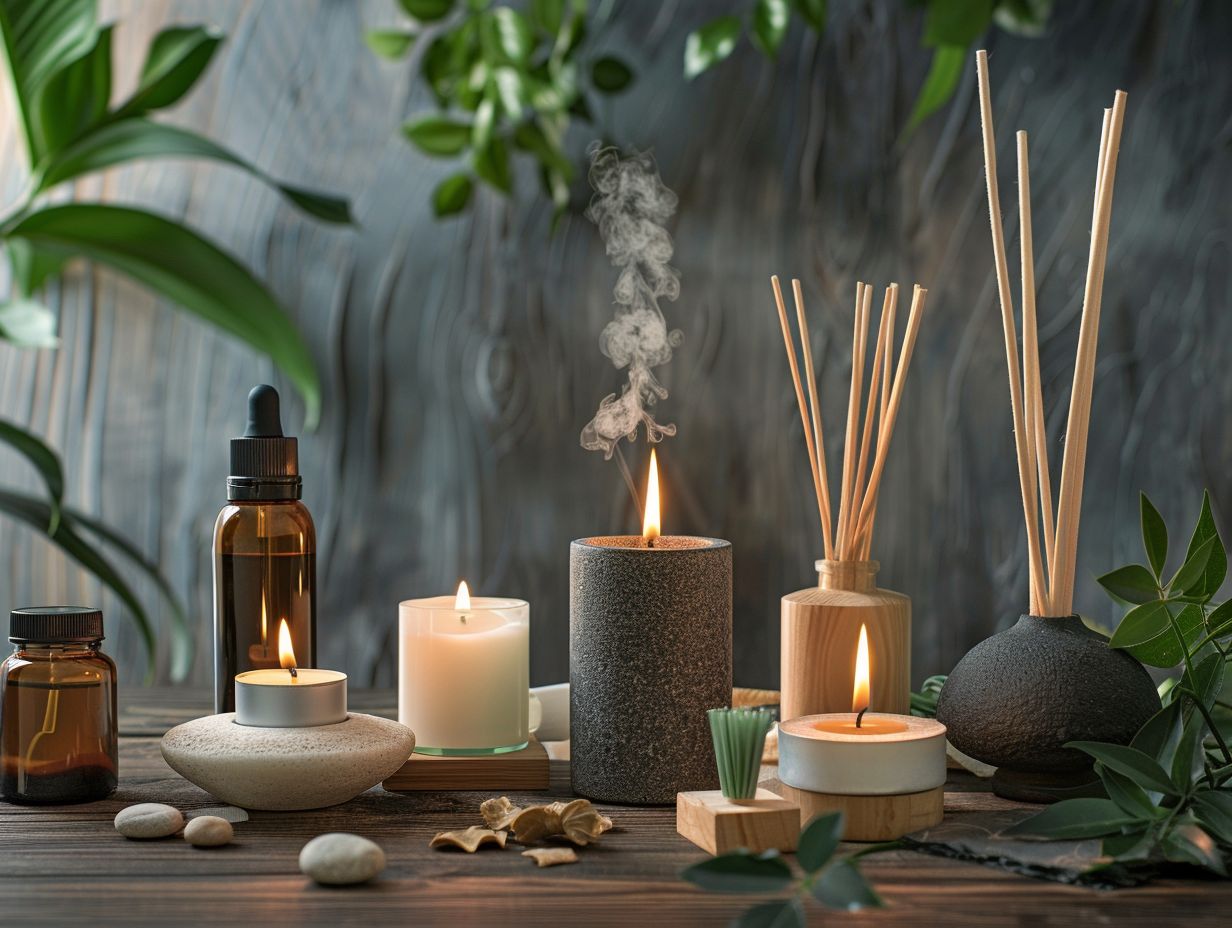
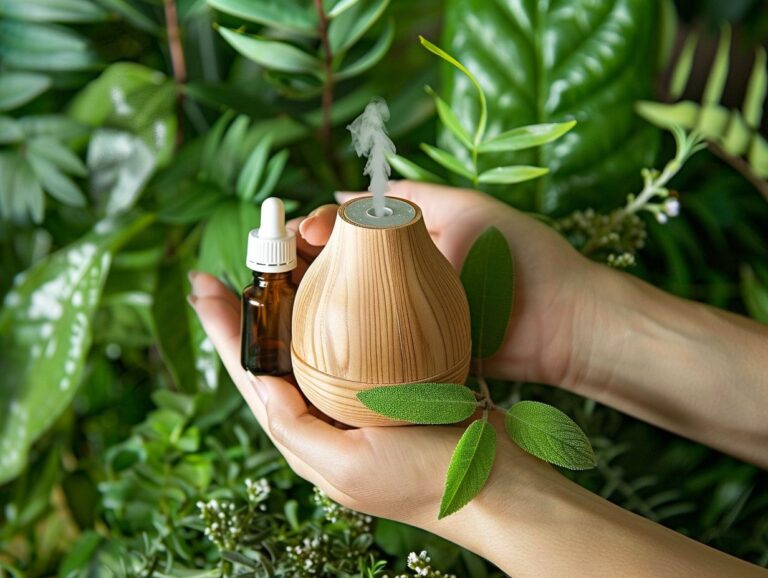


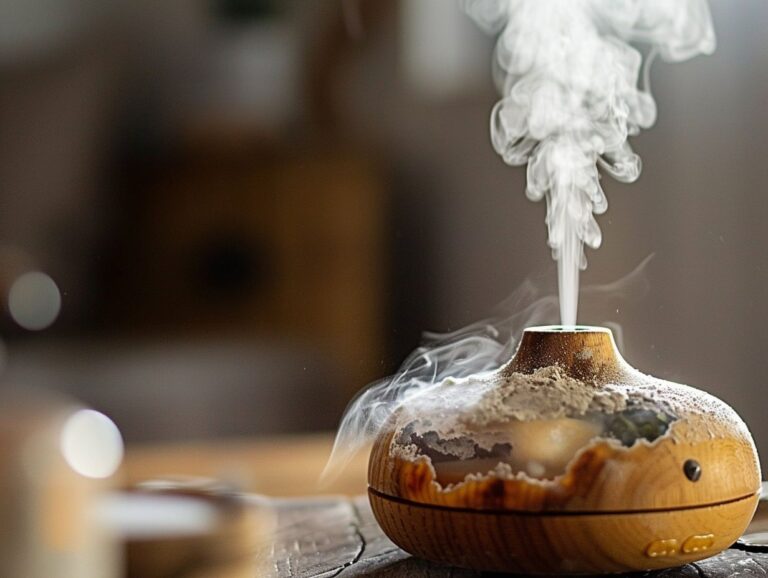
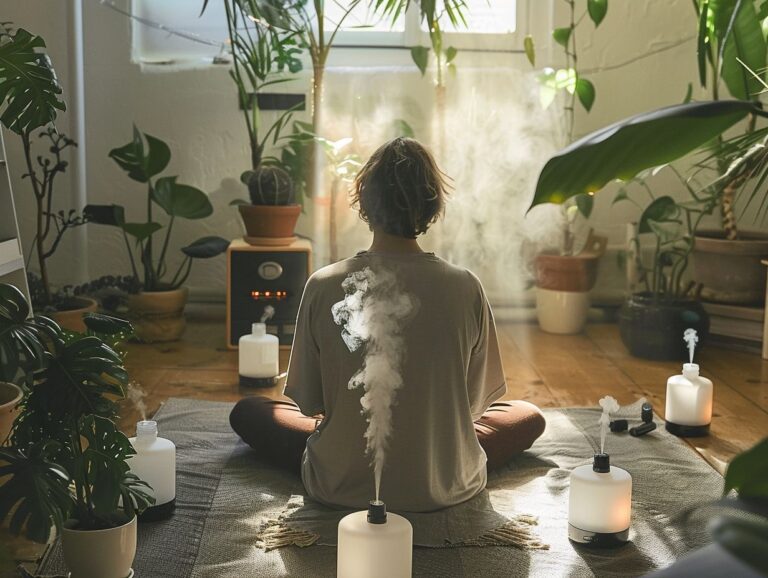
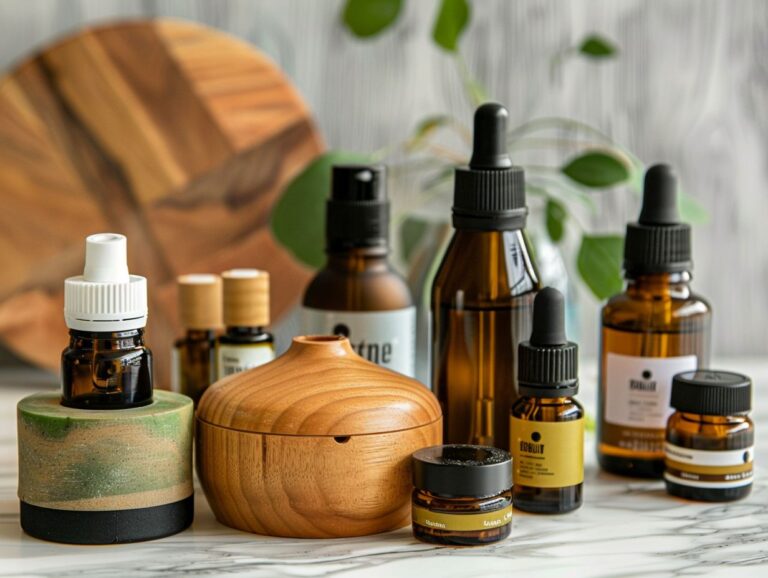
One Comment